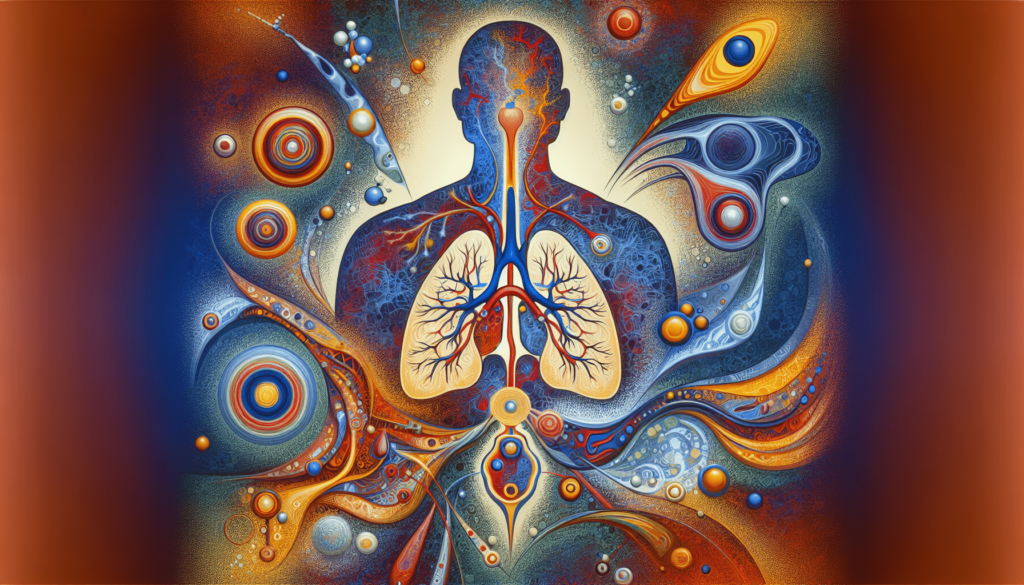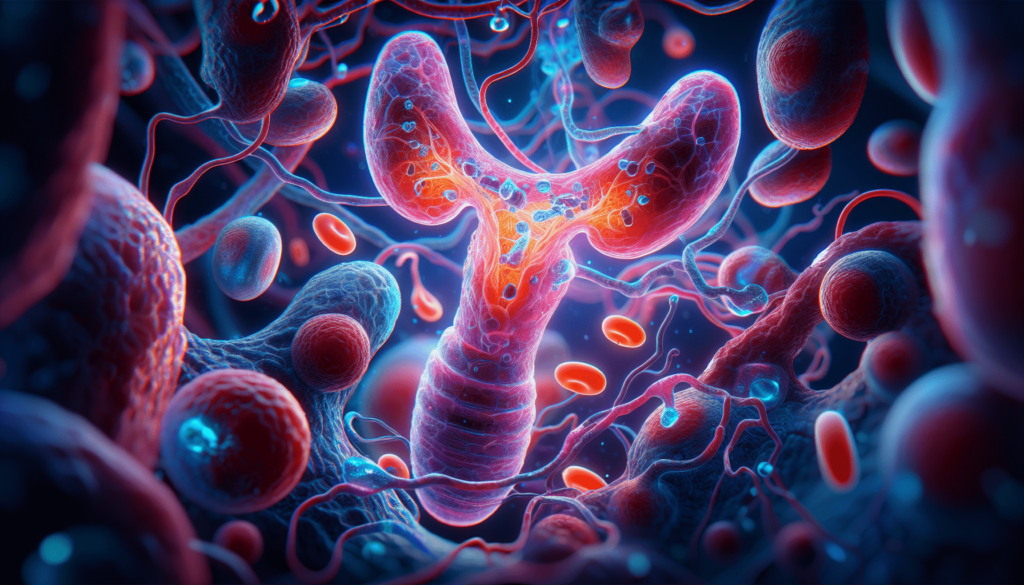Have you ever wondered what drives your moods, energy levels, or even your metabolism? These complex processes are largely influenced by tiny chemical messengers known as hormones. Produced by various glands within your endocrine system, these hormones play a vital role in regulating critical body functions. Learning about these secretions and the glands that produce them can offer fascinating insights into how your body operates.

Hormones: The Body’s Command Messengers
Hormones are like the body’s internal communication system. Composed of various chemical structures, they travel through your bloodstream to tissues and organs, dictating how they should function. Made by endocrine glands, hormones affect everything from growth and development to mood regulation and reproductive processes.
Understanding hormones isn’t just for science buffs or medical students. It’s impactful for you as it helps you become more attuned to the body’s functions. Moreover, it can guide you in making informed lifestyle choices that support your well-being.
How Hormones Work
Table of Contents
The mechanism of hormone action is quite fascinating. These chemicals bind to cell receptors, triggering specific cellular responses and enabling efficient functioning. Essentially, hormones unlock doors in cells that then initiate a variety of body processes.
Each hormone has its unique way of influencing cellular activities. Some act quickly, while others might take a longer time to show impacts. Hormones are meticulously balanced in your body, and even a small fluctuation can result in significant changes in how your body feels and functions.
Why Hormones Are Important
Understanding hormones matters a lot when you consider how even the slightest imbalance can disrupt your life. From unexplained weight gain to unexpected mood swings, these conditions often trace back to hormonal disturbances. Plus, conditions like diabetes, thyroid disorders, and hormone-sensitive cancers underscore just how critical hormone balance can be.
Proper hormone secretion enhances your overall health by regulating everything from your metabolism to your immune function. Therefore, understanding the source of these hormones, the glands, becomes essential.
The Seven Key Glands Producing Hormones
Your body hosts many glands, but seven are particularly noteworthy for their hormone production. Each of these glands holds a specific role in the endocrine system, like instruments in an orchestra, creating a perfect symphony called life.
1. The Pituitary Gland: The Master Conductor
The pituitary gland, often dubbed the ‘master gland,’ resides at the base of your brain. It might be small, but its influence is giant. This gland produces hormones that act on other endocrine glands, compelling them to release their respective hormones.
Key Hormones: Growth hormone, prolactin, adrenocorticotropic hormone (ACTH), thyroid-stimulating hormone (TSH), luteinizing hormone (LH), and follicle-stimulating hormone (FSH).
Functions: It regulates crucial functions like growth, blood pressure, and reproduction.
The pituitary gland orchestrates other glands, ensuring they release the right hormones at the right time. Think of it as a switchboard operator of the endocrine system, ensuring messages get to where they need to go.
2. The Thyroid Gland: Metabolic Controller
Located in the neck, the thyroid gland impacts how your body utilizes energy. The hormones this gland secretes play pivotal roles in metabolism, growth, and body temperature regulation.
Key Hormones: Thyroxine (T4) and triiodothyronine (T3).
Functions: These hormones regulate metabolism, heart rate, and body temperature.
Issues with your thyroid gland can lead to well-known conditions like hypothyroidism and hyperthyroidism, affecting weight, mood, and energy levels. Understanding its function aids in recognizing potential red flags within your metabolic system.
3. The Parathyroid Glands: Calcium Balancers
The parathyroid glands, usually four in number, are found neighboring the thyroid gland. They might be small, but their role in calcium regulation is gigantic, crucial for bone health and proper function of the nervous and muscular systems.
Key Hormone: Parathyroid hormone (PTH).
Functions: PTH regulates calcium levels in your blood and bone metabolism.
A disruption in PTH secretion could lead to issues like brittle bones, kidney stones, or complications with muscle control. Recognizing this gland’s role shines a light on the importance of maintaining optimal calcium levels.
4. The Adrenal Glands: Responders to Stress
Perched atop your kidneys, the adrenal glands manage your body’s response to stress. These glands are critical in producing hormones that are vital for your survival, especially when you are faced with stressful situations.
Key Hormones: Cortisol, adrenaline, norepinephrine, and aldosterone.
Functions: These hormones regulate metabolism, immune response, and blood pressure, and they help you respond to stress.
Without well-functioning adrenal glands, your ability to respond to stressors effectively could wane, underscoring the importance of stress management and adrenal health in your life.
5. The Pancreas: Blood Sugar Regulator
While the pancreas often draws attention for its digestive role, it is equally important in hormone secretion. Its endocrine function involves regulating your blood sugar levels, thereby influencing energy utilization.
Key Hormones: Insulin and glucagon.
Functions: Insulin lowers blood sugar levels, while glucagon increases them, maintaining balance.
Insight into the pancreas and its hormones deepens your understanding of diabetes management and prevention strategies, pivotal in today’s world where diabetic conditions are increasingly prevalent.
6. The Ovaries: Hormonal Centers in Females
In females, the ovaries have a starring role not just in reproduction but in broader hormonal health. They produce hormones that influence everything from menstrual cycles to broader aspects of emotional and bone health.
Key Hormones: Estrogen and progesterone.
Functions: These hormones are crucial for reproductive health, menstrual cycle regulation, and maintaining pregnancy.
A deeper understanding of ovarian hormones aids in better comprehension of menstrual health, fertility, and conditions like PCOS, empowering women to manage their reproductive health holistically.
7. The Testes: Hormonal Centers in Males
The testes serve as the primary source of reproductive hormones in males. These hormones influence physical development, reproductive function, and even mood regulation.
Key Hormone: Testosterone.
Functions: This hormone governs the development of male characteristics, influences muscle mass, and regulates moods.
Appreciating the hormonal function of the testes can enhance understanding regarding puberty, fertility concerns, and the role hormones play in male emotional and physical health.
The Interconnected Network
While each gland serves unique functions, your endocrine system doesn’t operate in isolated pockets. Instead, it’s an interconnected network where one hormone can influence another, maintaining the delicate balance essential for health.
Hormonal Feedback Loops
A remarkable feature of the endocrine system is its feedback mechanism, similar to a thermostat regulating temperature. When a hormone level drops or surges, feedback loops signal glands to adjust hormone production, maintaining balance.
For instance, when your blood sugar rises, the pancreas releases insulin, which helps lower sugar levels. As they return to normal, insulin production decreases, exemplifying this feedback action.
Hormonal Imbalances: Causes and Effects
Imbalances can stem from various factors, including stress, diet, or medical conditions. The effects are varied and can be mild, like fatigue, or severe, like a hormone-sensitive cancer.
Your lifestyle choices substantially impact your hormonal health. A balanced diet, regular exercise, stress management, and adequate sleep foster hormonal balance and overall well-being.
Recognizing Hormonal Symptoms
Knowing the signs of hormonal imbalances equips you to seek timely medical advice. Common symptoms include:
- Unexplained weight changes
- Mood swings
- Fatigue
- Changes in appetite
Early recognition and intervention prevent minor symptoms from ballooning into significant health issues.
Enhancing Hormonal Health
Improving hormonal health isn’t just about understanding glands; it’s about taking proactive steps towards fostering balance and supporting your endocrine system.
Lifestyle Choices
Balanced nutrition, regular physical activity, and adequate hydration play core roles in hormonal health. Foods rich in essential fatty acids, proteins, and complex carbohydrates nourish your endocrine system.
Stress Management
Since stress impacts many glands, managing it efficiently supports your hormonal health. Techniques like meditation, mindfulness, and yoga are effective tools in fostering relaxation and balance.
Understanding Medical Options
For persistent or severe hormone-related symptoms, medical intervention may be necessary. Hormone replacement therapies and medications can regulate hormone levels, ensuring you regain balance and well-being.
Regular Check-ups
Routine health screenings detect potential hormonal disruptions early, permitting prompt intervention. Talking with your healthcare provider about any concerns fosters understanding and trust, empowering you in your health journey.

Conclusion
Understanding hormone secretion and the pivotal glands involved offers you valuable insights into the intricate workings of your body. These glands discreetly guide various physiological processes, impacting your daily life in significant ways.
Your newfound knowledge positions you to make informed choices that support not just hormonal balance, but broader health and well-being. From lifestyle adjustments to understanding when to seek medical advice, each step you take fosters a healthier, more harmonious you.




